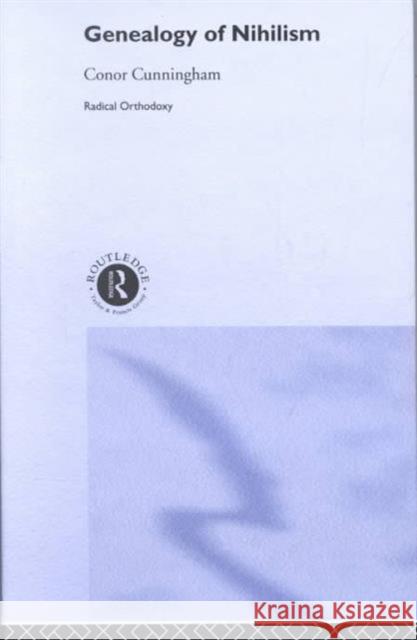Genealogy of Nihilism: Philosophies of Nothing and the Difference of Theology » książka
Genealogy of Nihilism: Philosophies of Nothing and the Difference of Theology
ISBN-13: 9780415276931 / Angielski / Twarda / 2002 / 334 str.
Genealogy of Nihilism: Philosophies of Nothing and the Difference of Theology
ISBN-13: 9780415276931 / Angielski / Twarda / 2002 / 334 str.
(netto: 723,00 VAT: 5%)
Najniższa cena z 30 dni: 680,04
ok. 16-18 dni roboczych.
Darmowa dostawa!
Nihilism is the logic of nothing as something, which claims that Nothing Is. Its unmaking of things, and its forming of formless things, strain the fundamental terms of existence: what it is to be, to know, to be known. But nihilism, the antithesis of God, is also like theology. Where nihilism creates nothingness, condenses it to substance, God also makes nothingness creative. Negotiating the borders of spirit and substance, theology can ask the questions of nihilism that other disciplines do not ask: Where is it? What is it made of? Why is it so destructive? How can it be made holy, or overcome? Genealogy of Nihilism rereads Western history in the light of nihilistic logic, which pervades two millennia of Western thought and is coming to fruition in our present age in a virulently dangerous manner. From Parmenides to Alain Badiou, via Plotinus, Avicenna, Duns Scotus, Ockham, Descartes, Spinoza, Kant, Hegel, Heidegger, Sartre, Lacan, Deleuze and Derrida, a genealogy of nothingness can be witnessed in development, with devastating consequences for the way we live. As dualistic logic, nihilism has come to ground existence not in life but in the absences beyond it.











